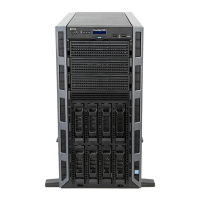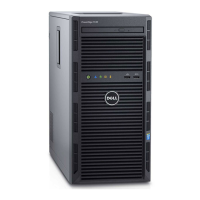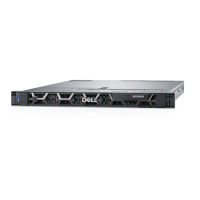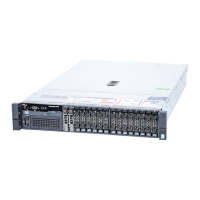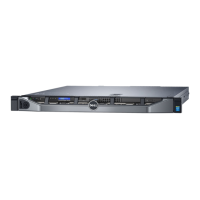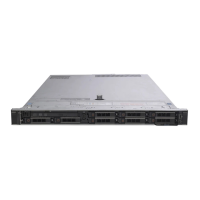System Setup
By using the System Setup screen, you can congure the BIOS settings, iDRAC settings, and device settings of your system.
NOTE: Help text for the selected eld is displayed in the graphical browser by default. To view the help text in the text browser,
press F1.
You can access system setup by using two methods:
• Standard graphical browser — The browser is enabled by default.
• Text browser — The browser is enabled by using Console Redirection.
Entering System Setup
1 Turn on, or restart your system.
2 Press F2 immediately after you see the following message:
F2 = System Setup
If your operating system begins to load before you press F2, wait for the system to nish booting, and then restart your system and try
again.
System Setup details
The System Setup Main Menu screen details are explained as follows:
Option
Description
System BIOS Enables you to congure BIOS settings.
iDRAC Settings Enables you to congure iDRAC settings.
The iDRAC settings utility is an interface to set up and congure the iDRAC parameters by using UEFI (Unied
Extensible Firmware Interface). You can enable or disable various iDRAC parameters by using the iDRAC settings
utility. For more information about this utility, see Integrated Dell Remote Access Controller User’s Guide at
Dell.com/idracmanuals.
Device Settings Enables you to congure device settings.
System BIOS Settings details
The System BIOS Settings screen details are explained as follows:
Option
Description
System Information Species information about the system such as the system model name, BIOS version, and Service Tag.
Memory Settings Species information and options related to the installed memory.
Processor Settings Species information and options related to the processor such as speed and cache size.
SATA Settings Species options to enable or disable the integrated SATA controller and ports.
Boot Settings Species options to specify the boot mode (BIOS or UEFI). Enables you to modify UEFI and BIOS boot settings.
Network Settings Species options to change the network settings.
36 Pre-operating system management applications

